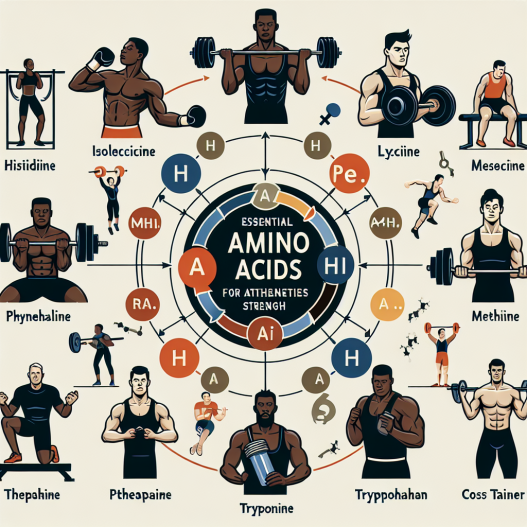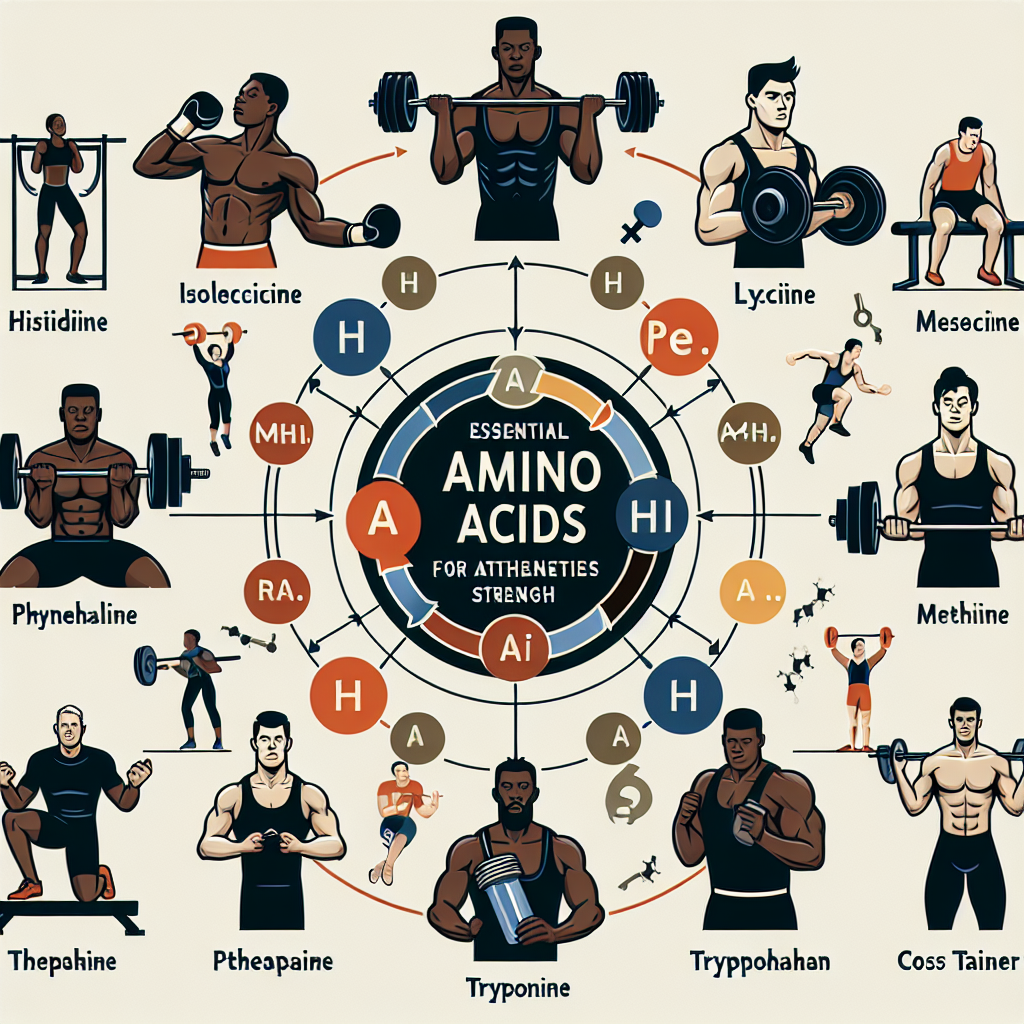-
Table of Contents
Essential Amino Acids for Athletes’ Endurance and Strength
Athletes are constantly pushing their bodies to the limit, whether it’s in training or competition. To perform at their best, they need to have a well-balanced diet that provides them with all the necessary nutrients. One crucial component of this diet is essential amino acids (EAAs). These are the building blocks of protein and play a vital role in muscle growth, repair, and maintenance. In this article, we will explore the importance of EAAs for athletes’ endurance and strength and how they can optimize their intake to enhance their performance.
The Role of EAAs in Endurance and Strength
Endurance and strength are two essential components of athletic performance. Endurance refers to the ability to sustain physical activity for an extended period, while strength is the ability to exert force against resistance. Both of these factors are crucial for athletes, regardless of their sport. EAAs play a significant role in both endurance and strength, making them a vital part of an athlete’s diet.
When it comes to endurance, EAAs are essential for maintaining muscle mass and preventing muscle breakdown during prolonged physical activity. During endurance exercise, the body relies on stored glycogen for energy. However, as glycogen levels deplete, the body turns to protein as an alternative source of fuel. This can lead to muscle breakdown, which can negatively impact endurance performance. By consuming EAAs, athletes can provide their bodies with the necessary building blocks to prevent muscle breakdown and maintain muscle mass, allowing them to sustain physical activity for longer periods.
In terms of strength, EAAs are crucial for muscle growth and repair. Resistance training, which is a common form of exercise for athletes, causes micro-tears in muscle fibers. These tears are then repaired and strengthened, leading to muscle growth. EAAs are necessary for this repair process, as they provide the building blocks for new muscle tissue. Without adequate EAA intake, athletes may experience slower muscle recovery and growth, which can hinder their strength gains.
Optimizing EAA Intake for Athletes
Now that we understand the importance of EAAs for endurance and strength, the next question is, how can athletes optimize their intake? The recommended daily intake of EAAs for adults is 0.8 grams per kilogram of body weight. However, for athletes, this may not be enough to support their high levels of physical activity and muscle demands. Therefore, it is recommended that athletes consume 1.2-2.0 grams of EAAs per kilogram of body weight per day.
It is also essential for athletes to consume a balanced mix of all nine EAAs, as each one plays a unique role in muscle growth and repair. These nine EAAs are leucine, isoleucine, valine, lysine, methionine, phenylalanine, threonine, tryptophan, and histidine. While all of these EAAs are essential, leucine is considered the most critical for muscle protein synthesis. Therefore, athletes should ensure they are consuming enough leucine in their diet, either through food sources or supplements.
Food sources of EAAs include animal products such as meat, poultry, fish, and dairy. However, for athletes who follow a plant-based diet, it may be challenging to consume enough EAAs through food alone. In this case, EAA supplements can be a convenient and effective way to ensure adequate intake. These supplements are available in powder or capsule form and can be easily incorporated into an athlete’s daily routine.
Real-World Examples
Many athletes have already recognized the benefits of EAAs for their endurance and strength. One example is professional bodybuilder and fitness model, Steve Cook. In an interview with Bodybuilding.com, Cook shared that he takes EAA supplements before and after his workouts to support muscle growth and recovery. He also emphasized the importance of consuming a balanced mix of EAAs, stating, “I think it’s important to get all nine essential amino acids because they all play a role in muscle growth and repair.”
Another example is Olympic gold medalist and world champion swimmer, Michael Phelps. In his book, “No Limits: The Will to Succeed,” Phelps reveals that he consumed a high-protein diet, including EAAs, to support his intense training regimen. He also credits EAAs for helping him recover quickly between training sessions and competitions.
Expert Opinion
According to Dr. John Berardi, a renowned sports nutritionist and co-founder of Precision Nutrition, EAAs are crucial for athletes’ endurance and strength. In an article for Men’s Health, he states, “EAAs are the most important amino acids for muscle growth and repair, and they’re especially important for athletes.” He also recommends consuming EAAs before and after workouts to optimize their benefits.
Conclusion
In conclusion, essential amino acids are a vital component of an athlete’s diet, especially when it comes to endurance and strength. They play a crucial role in maintaining muscle mass, preventing muscle breakdown, and supporting muscle growth and repair. Athletes can optimize their EAA intake by consuming a balanced mix of all nine EAAs and ensuring they are consuming enough leucine. Whether through food sources or supplements, EAAs can help athletes reach their full potential and achieve their performance goals.
References
Bodybuilding.com. (n.d.). Steve Cook’s ultimate guide to essential amino acids. Retrieved from https://www.bodybuilding.com/content/steve-cooks-ultimate-guide-to-essential-amino-acids.html
Phelps, M., & Abrahamson, A. (2008). No limits: The will to succeed. New York: Free Press.
Men’s Health. (2018). The essential amino acid you’re not getting enough of. Retrieved from https://www.menshealth.com/nutrition/a19545944/essential-amino-acids/



















